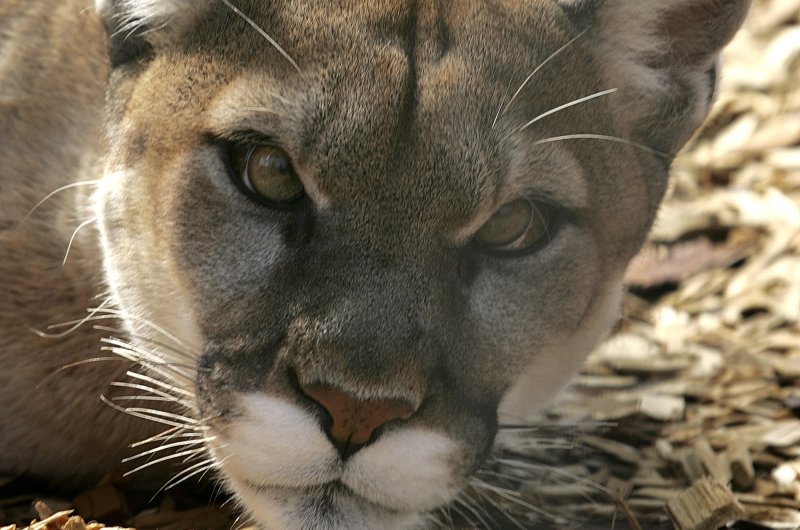Mountain lions in the Santa Monica Mountains are interbreeding as their range becomes increasingly overcrowded. (UPI Photo/Gary C. Caskey) |
License Photo
SANTA MONICA, Calif., Aug. 18 (UPI) -- A growing population of mountain lions in the Santa Monica Mountains of California have found themselves penned in by busy freeways, resulting in increasing competition among males and a shrinking gene pool as a result of inbreeding.
Researchers with the National Park Service have been studying the genetic makeup of the increasingly bellicose lions, as well as observing their behaviors. Biologists say their geographic constraints have led to a small gene pool, potentially compromising the populations health.
Normally, all male juvenile mountain lions -- and at least half the females, as well -- leave their birth range and stake out their own domain. But the lions of the Santa Monica Mountains can't do that, leading to an uptick in deadly conflicts among the lions.
"We see a number of things going on that we think are unusual and are associated with the fact that the population is constrained like this," Seth Riley, an NPS wildlife ecologist at the Santa Monica Mountains National Recreation Area, told Southern California Public Radio station KPCC.
As the recent mountain lion study -- published in the latest issue of the journal Current Biology -- recounts, park officials recorded seven instances of intraspecific killings. Of the seven, five of the were carried out by male lions against brothers, offspring or former mates.
"It's typically advantageous for male lions to fight, kill, or run off other males. But in a normal situation, every male disperses," Riley told The Atlantic's City Lab. "What ends up happening is you have these interactions that shouldn't be happening -- fathers are killing their sons and vice versa."
But despite the car-clogged freeways that hem the lions in, one lion has escaped and one outsider lion has entered. A lonely lion, P22, now roams the Hollywood Hills. But unless another female leaves too, he won't be able to reproduce. Another male, P12, arrived from elsewhere and came to dominate the population, injecting much needed fresh genetic material. Unfortunately, P12 has since been observed mating with his daughter. Still, his success lends hope that other lions might arrive and diversify the gene pool once again.
"It doesn't have to be a lot," Riley explained to KPCC. "One per year, say, that ended up being a viable animal could probably be enough for a species like mountain lions, that have relatively low density, and one animal could make a big difference."
But for every lion that leaves or arrives, successfully clambering across the multi-lane highway, there are many more who don't.















